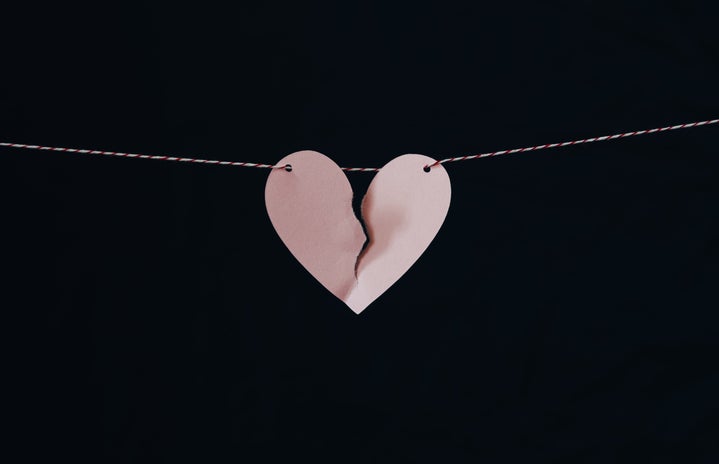Disclaimer: I am not a licensed mental health professional or grief expert. There are only ideas from my personal experience that are not meant to offend, harm, or upset anyone. This article mentions the experiences of grief as well as surviving a suicide.
Grief has become one of those topics that everyone seems to avoid at large gatherings, after a leave of absence, or when seeing someone after they have just lost someone. People tend to avoid all costs until the grieving person initiates the conversation. After the devastating loss of my sixteen-year-old cousin in May, I experienced a lot of weird interactions with friends, family, and even professors. After losing my cousin, I expected it to be awkward, well, because it was death, and it was suicide as well. At such a fragile time in my life, the verbal comfort of others was crucial in my healing but has hindered it in some cases. If you aren’t sure how to support a grieving loved one, here are tips I found helpful in my grief journey.
What not to do
All of these things are usually said with the best intentions and by good people with kind hearts. This is not meant to be mean or shameful to people who have accidentally said something along these lines. This is purely for education purposes.
- “It was God’s plan”
-
Death is a natural part of life, but some deaths don’t make any sense, such as car accidents, suicide, murder, cancer, etc. The hardest part of grief is trying to make sense of these losses. Saying that it was “God’s plan” is first assuming the person is religious and invalidates their confusion. How could it be God’s plan for a child to die or for someone to take their own life? Sometimes horrible things happen for no reason. Better to just leave out religious messages altogether and just validate by saying “this is really painful and horrible.”
- “Everything happens for a reason”
-
Just as mentioned before, horrible things happen out of blue and for no reason. Life can bring the toughest battles and the pain doesn’t make sense. In a way, the person is telling you that this person deserved to die because of a reason we don’t know. It makes sense why people want to try to help the person understand, but sometimes we will never understand. Instead, try saying “this must be so confusing for you.”
- Don’t stop reaching out
-
A common pattern for people grieving is that they receive a large number of supportive texts, calls, and cards the first week after their loved one has died, but it eventually starts to fade out after the first week or after the funeral. Grief does not stop after a month, six months, or even years. It is a constant process that can affect people at random times with little warning or reason. For me, anniversaries of my cousin’s death, her birthday, or any holidays can be just as painful as that first month. From my experience, after some time, people stopped asking me how I was doing with my grief or how my family was even though it is still so present in my day-to-day life. Keep reaching out to people even after some time has passed, especially around the deceased’s birthday or anniversary and especially around the holidays. Ask them how they are doing, how you can support them, or share a sweet memory you have with them
- Say nothing.
-
“I didn’t want to say the wrong thing” is an excuse I have continued to hear so frequently after the death of my cousin. What I realized is that not saying anything is more painful than saying the wrong thing. If you are scared to say the wrong thing or unsure of your relationship with the grieving person, just stick to “I am so sorry for your loss.” You don’t have to type this long paragraph or offer some existential advice, just showing you are thinking about the person and giving your condolences means more than you can imagine.
- Don’t question their relationship with their loved one
-
People can mourn anyone’s death regardless of their relationships, including a pet, a distant family member, and even celebrities in some cases. Everyone grieves people differently and at different paces. Don’t assume that just because they didn’t seem close makes the loss less painful. We never know the relationships people have behind closed doors and any feeling of grief is valid regardless of closeness. Don’t say things along the line of “I didn’t know you guys were close.” Try saying “it sounds like you guys had a special bond.”
My beautiful cousin that I lost in May.
What to do
- Do acts of service
-
At the darkest moments of your life, a lot of your responsibilities can get lost through the cracks and it can become difficult to do them. Sometimes the most helpful thing to someone grieving is having somebody come and just bring dinner, make their bed, or help them do chores. It can take a weight off their shoulders and can also be a nice distraction from the pain. It doesn’t have to be much, just something to help them take care of their basic needs.
- Share memories of the deceased
-
I love hearing memories about those who I have lost. When someone dies, we can forget that there was more to their life than just their death. When someone shares something that reminds them of my loved ones or remembers a funny memory, it makes me feel like people still remember them and think about them. For example, my cousin’s favorite flower was a sunflower and when people give me sunflower-related gifts or send me pictures of them, it makes me feel loved and helps distract me from the pain of their death.
- Give grace to the grieving
-
What makes grief so confusing and complex is the unique patterns it has. Some days can be full of optimism and hope, and others can bring you down, making you incapable of leaving your bed. Personally, sometimes it’s hard for me to tell those around me why I am hiding or pushing others away because I can barely understand what I am feeling myself. Sometimes I feel more anger than sadness and other days I feel like shutting everyone out. If someone you know seems to be up and down or distant, don’t assume it’s because you’ve done something wrong but rather just grief making its appearance known again. Check in with them if you haven’t heard from them or if they seem down and give grace for their ever-changing emotions.
- Just sit with them
-
I’ve noticed that people can feel pressured to offer this grand advice or wisdom to someone who is grieving, unsure of how to make them feel better. But most of the time, people aren’t looking for advice (unless they specifically ask for it) they are just looking for someone to validate their experience and comfort them. Ask them if they want support, advice, or a distraction. If they say support, just sit with them and listen to them talk, or sit in silence and be in their company. If they don’t know what they want, assume just support and sit with them. Either pat their back while they cry or just watch a movie.
Grief can be a confusing experience for the person experiencing the emotions as well as the people looking to support their loved one. The holidays can be extremely difficult for those grieving as well as confusing for those who want to help. The best way to support them is just to reach out and ask what they need so you can further learn how grief impacts everyone uniquely.
Resources:
Grief handouts, videos, and podcasts.



